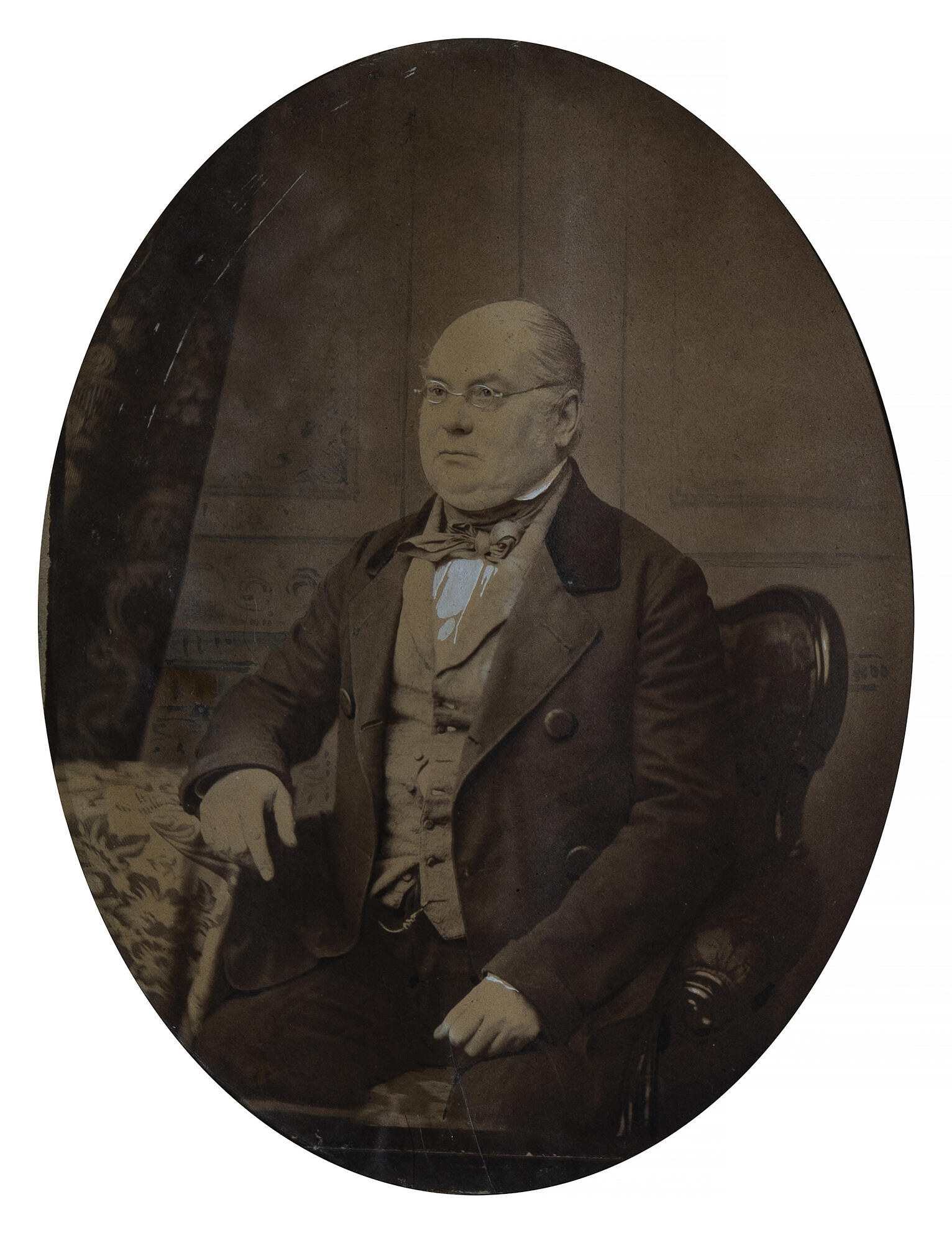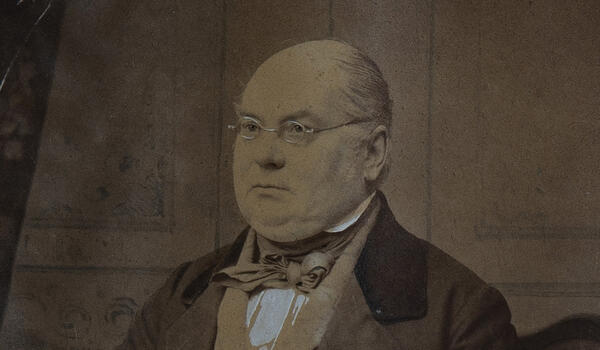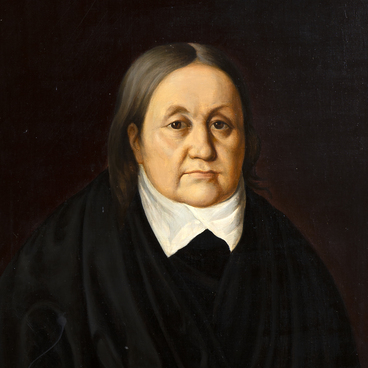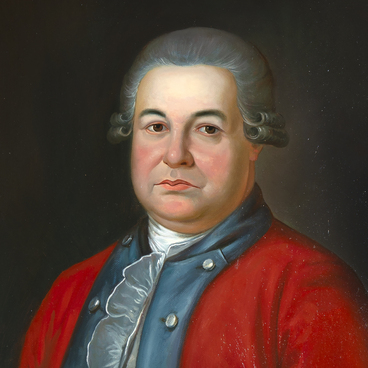The photo depicts Nikolai Tyutchev, the poet’s elder brother, who was born in the village of Ovstug in 1801. He was one of the best graduates of the Moscow Military School of Column Guides. At the age of sixteen, Tyutchev, in the rank of ensign, already served in the retinue of His Imperial Majesty. Then he was transferred to the General Staff of the Guards, but in 1826, he was dismissed “for family reasons.” The reason was his closeness to some of the Decembrists. Nikolai Tyutchev himself was not interrogated during the investigation of the Decembrists’ case, but he had relatives and friends among them and even might have attended their meetings.
After his dismissal, Tyutchev had a chance to make a career when he re-entered military service and participated in the suppression of the Polish rebellion (for which he was awarded the golden sword ‘For Bravery’). However, in 1841 he filed a report and resigned in the rank of colonel. After that, Nikolai Tyutchev settled in Moscow for good and for many years took care of his younger brother and his family. Tyutchev spent most of his time in the English club, which was located not far from the house where he rented an apartment. Being a bachelor, he regarded the club as his second home. It was there that Nikolai Tyutchev died of heart failure in December 1870.
Ivan Aksakov, a publicist and the first biographer of Fyodor Tyutchev, wrote, ‘Nikolai Ivanovich was not endowed with any talents, but he was distinguished by strict accuracy. He dearly loved his younger brother and was his constant guardian angel… The affection for his brother Fyodor filled his whole life.’ Also after the death of Nikolai, he noted that ‘few understood what this loss meant for Tyutchev — and while, in the opinion of his friends, he continued enjoying his life, this is what resonated and lived in the depths of his soul, these are the poems he wrote on his way from Moscow to St. Petersburg after his brother’s funeral. These verses were not only exempt from publishing but also carefully hidden, and even in his own family only a few knew about them.’ Fyodor Tyutchev dedicated his poem “Brother, you have been with me so long…” to Nikolai:
After his dismissal, Tyutchev had a chance to make a career when he re-entered military service and participated in the suppression of the Polish rebellion (for which he was awarded the golden sword ‘For Bravery’). However, in 1841 he filed a report and resigned in the rank of colonel. After that, Nikolai Tyutchev settled in Moscow for good and for many years took care of his younger brother and his family. Tyutchev spent most of his time in the English club, which was located not far from the house where he rented an apartment. Being a bachelor, he regarded the club as his second home. It was there that Nikolai Tyutchev died of heart failure in December 1870.
Ivan Aksakov, a publicist and the first biographer of Fyodor Tyutchev, wrote, ‘Nikolai Ivanovich was not endowed with any talents, but he was distinguished by strict accuracy. He dearly loved his younger brother and was his constant guardian angel… The affection for his brother Fyodor filled his whole life.’ Also after the death of Nikolai, he noted that ‘few understood what this loss meant for Tyutchev — and while, in the opinion of his friends, he continued enjoying his life, this is what resonated and lived in the depths of his soul, these are the poems he wrote on his way from Moscow to St. Petersburg after his brother’s funeral. These verses were not only exempt from publishing but also carefully hidden, and even in his own family only a few knew about them.’ Fyodor Tyutchev dedicated his poem “Brother, you have been with me so long…” to Nikolai:



